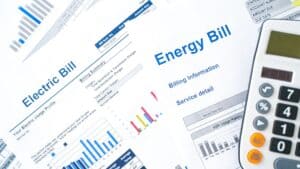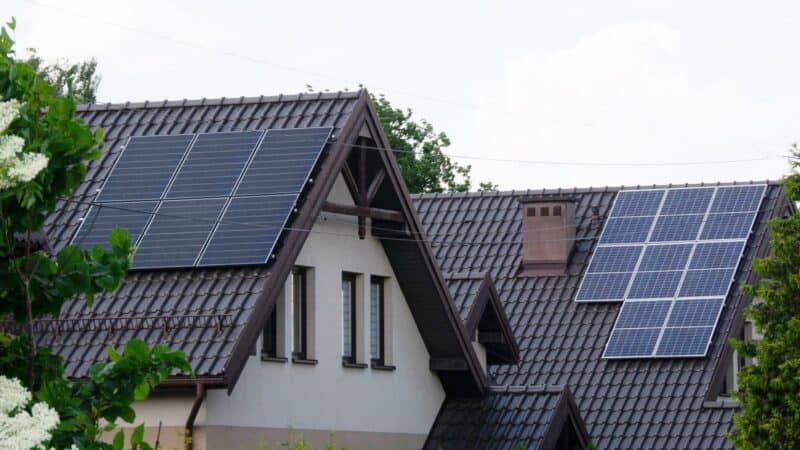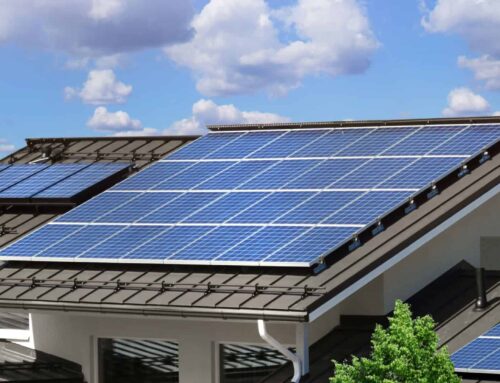Are high electricity bills causing concern for Rhode Island homeowners? Knowing the benefits of solar power panels can help lower those expenses significantly. This post will provide an overview of solar power panels, their potential to reduce energy costs, and the incentives available for residents in Rhode Island. Readers will gain insights into maintaining solar systems, choosing the right installer, and understanding net metering. By exploring testimonials from local homeowners, the content addresses the common problem of rising energy costs and presents solar energy as a viable solution.
Key Takeaways
- Solar power panels reduce reliance on fossil fuels and lower energy bills for homeowners
- Minimal maintenance is required after installation, ensuring hassle-free energy generation
- Financial incentives and rebates can significantly decrease the overall cost of solar panel installation
- Net metering allows homeowners to receive credits for excess electricity, further reducing utility expenses
- Emerging solar technologies promise greater efficiency and enhance energy independence for Rhode Island residents
Understanding Solar Power Panels and Their Advantages for Rhode Island Homes
Solar power panels, called photovoltaics, convert sunlight into electricity that can power homes. If you want to know solar, this transformation occurs through a process where solar energy is converted into direct current (DC), which is then converted into alternating current (AC) for household use. This technology provides Rhode Island residents with a sustainable energy source, reducing reliance on traditional fossil fuels. Many satisfied customers have provided positive testimonials about their switch to solar energy.
The advantages of solar power overview for Rhode Island homes extend beyond environmental benefits. Homeowners can experience significant reductions in energy bills by generating their electricity. Research shows that investing in solar panels can yield financial savings, making it an appealing choice for many homeowners in the state. testimonials support these findings.
Another benefit of solar panels is their low maintenance requirements. Once installed, solar power systems often require minimal upkeep, making them a hassle-free energy solution. Homeowners can enjoy consistent energy generation without the frequent maintenance in other energy systems.
Furthermore, utilizing solar power panels can increase property value. Homes equipped with solar panels often appeal to environmentally conscious buyers, thereby enhancing marketability. The integration of solar technology provides long-term financial and ecological benefits for Rhode Island homeowners:
- Conversion of sunlight into electricity through photovoltaics.
- Reduction in energy bills for homeowners.
- Minimal maintenance requirements for solar power systems.
- Increased property value and market appeal.
Analyzing the Costs of Solar Power Panels for Homeowners in Rhode Island

The average cost of installing solar power panels in Rhode Island varies, influenced by factors such as system size and installation complexity. Homeowners can access various financing options to ease upfront expenses, including tax credits and warranties that protect their investment. Understanding these costs and available incentives is essential for making informed decisions regarding solar energy systems.
What Is the Average Cost of Installing Solar Power Panels?
The average cost of installing solar power panels in Rhode Island can range significantly based on the size and specifics of the solar system. Typically, homeowners might expect to invest between $15,000 to $25,000 for a complete setup. This estimate includes equipment and installation, but it does not factor in potential savings from tax credits, which can substantially reduce the initial financial burden.
Aside from the installation costs, homeowners should also consider ongoing expenses like insurance and maintenance for their solar system. Budgeting for these factors ensures that homeowners are prepared for future costs while benefiting from reduced energy bills, especially during peak air conditioning months. Engaging with local solar providers can provide clearer insights and detailed quotes tailored to individual energy needs and financial capabilities.
Financing Options Available for Solar Power Systems
Homeowners in Rhode Island have multiple financing options available for solar power systems, making solar energy more accessible. For instance, various loan programs provide favorable terms, often allowing homeowners to pay monthly installments that align with their energy savings, thereby managing costs easily. Solar tax credits can significantly reduce upfront expenses, offering financial relief when investing in solar technology, especially as energy efficiency measures, such as upgrading a thermostat or improving insulation in the attic, are also considered.
Another avenue for financing is through property tax incentives that encourage investments in renewable energy. These incentives allow homeowners to benefit from tax breaks, thereby enhancing the overall financial feasibility of solar power installation. Many local banks and credit institutions are beginning to offer specialized finance products aimed at supporting the transition to solar energy, which encourages homeowners to take advantage of these evolving options while gaining long-term savings on energy bills.
How Solar Power Panels Lead to Reduced Energy Bills

Solar power panels provide an effective strategy for lowering energy bills in Rhode Island homes. Examining energy savings over time reveals the long-term financial impact of solar cells. Factors influencing savings, such as utility rates and how solar panel usage aligns with mortgage obligations, will also be discussed, offering homeowners key insights into optimizing energy costs and enhancing financial benefits.
Examining Energy Savings Over Time
When homeowners in Rhode Island install solar power panels, energy conservation becomes a tangible benefit, especially when it comes to saving on monthly bills. The savings seen on energy costs can be significant, as homeowners utilize solar energy for everyday appliances, such as refrigerators and electric generators, reducing reliance on grid electricity. Over time, these savings can accumulate, demonstrating the value of solar panel investment and contributing to a sustainable lifestyle.
Homeowners may benefit from tax exemptions designed to encourage renewable energy investments. Such financial incentives can further enhance the appeal of solar systems, leading to a faster return on investment. As more residents adopt solar technology, they not only lower their utility costs but also create a positive impact on the environment over time:
| Year | Estimated Savings ($) |
|---|---|
| 1 | 500 |
| 2 | 1,100 |
| 3 | 1,800 |
| 4 | 2,500 |
| 5 | 3,200 |
Factors That Influence Savings Based on Solar Panel Usage
The efficiency of solar power panels in reducing energy bills largely depends on how homeowners utilize their technology. For instance, using energy-efficient appliances such as a clothes dryer and an oven during peak sunlight hours can enhance the overall savings from the solar energy generated. This strategic approach enables homeowners to maximize the benefits of their solar installations, leading to noticeable reductions in their monthly utility expenses.
Another critical factor influencing savings is the use of power strips for electronics. By ensuring that devices are powered off or unplugged when not in use, homeowners can further decrease their overall energy consumption. Understanding available incentives for solar energy systems can inspire more residents to invest in these solutions, amplifying the impact of solar panels on reducing energy bills across Rhode Island.
Available Incentives for Solar Power in Rhode Island

Homeowners in Rhode Island can benefit significantly from various state and federal incentives for solar power. These include tax credits and rebates specifically aimed at reducing installation costs for renewable energy projects. Understanding these financial incentives will help residents maximize savings when investing in solar systems that can power essential household appliances like washing machines, dishwashers, and ceiling fans.
State and Federal Incentives for Homeowners
Homeowners in Rhode Island can take advantage of various state and federal incentives that significantly reduce the financial burden of solar power panel installation. Tax credits are available, allowing homeowners to deduct a percentage of the installation cost from their federal income taxes. Rhode Island offers rebates that can further lower upfront costs, making solar energy a more attainable option for many residents looking to lower their energy bills.
Another option that homeowners can explore is the power purchase agreement (PPA), which allows them to install solar panels with little to no initial investment. Under a PPA, residents pay for the electricity generated by the solar panels, rather than purchasing the system outright. This arrangement can provide affordable access to solar energy solutions, while still promoting sustainable practices, reducing reliance on traditional energy sources, and lightening the overall financial load for families in Rhode Island and nearby Massachusetts.
Tax Credits and Rebates for Solar Installation
Tax credits and rebates for solar installation play a significant role in making sustainable energy solutions more accessible to Rhode Island homeowners. These financial incentives can help reduce the upfront costs associated with installing solar power panels, allowing residents to invest in a system that harnesses sunlight efficiently. By partnering with a qualified electrician, homeowners can navigate the application process and ensure they maximize the money available through these incentives, ultimately contributing to lower energy bills.
Net metering is another beneficial component of Rhode Island’s solar energy landscape, enabling homeowners to receive credits for the excess electricity their solar power panels generate. This system allows homeowners to offset their energy costs even more, as the credits can be applied to future utility bills. By understanding and leveraging these tax credits, rebates, and net metering provisions, Rhode Island residents can enhance their financial savings while transitioning to a more sustainable energy source.
Maintenance Considerations for Solar Power Panels
Solar power panels require necessary upkeep to ensure their longevity and efficiency. Regular maintenance helps homeowners protect their property and maximize energy savings. This section will address common issues faced by solar power systems and practical solutions to resolve them. Considerations such as monitoring system performance and utilizing smart devices like programmable thermostats can also improve overall savings and customer satisfaction.
Necessary Upkeep for Longevity and Efficiency
To ensure the longevity and efficiency of solar power panels, regular upkeep is essential. Cleaning the panels helps maintain their efficiency by removing dirt and debris that can obstruct sunlight. Homeowners should also check the air filters of their heating and cooling systems, as a clean filter promotes better airflow and helps optimize the performance of systems that work alongside solar energy installations.
In addition to cleaning, monitoring the performance of the solar system is critical for maximizing energy savings. Utilizing a smart thermostat can help residents effectively manage their energy consumption, making it easier to adjust settings based on solar energy availability. For those who opt for a lease rather than an outright purchase of solar panels, understanding the maintenance stipulations outlined in the lease agreement is vital for maintaining the system’s efficiency over time.
Common Issues and Their Solutions
One common issue with solar power panels is dirt accumulation on the cells. Dust, leaves, and other debris can block sunlight, reducing the efficiency of energy production. Homeowners can solve this by periodically cleaning their panels using a soft brush or gentle rinsing with water to maintain optimal functionality, ensuring that they maximize energy savings for applications such as water heating or running laundry appliances.
Another concern involves shading from nearby windows or trees, which can lead to reduced performance. If a panel is partially shaded, it can significantly decrease overall energy generation. To address this, homeowners can trim back overgrown vegetation or consider relocating panels to more suitable locations with unobstructed access to sunlight. Taking these measures ensures consistent energy output and helps keep utility costs low.
| Issue | Solution |
|---|---|
| Dirt accumulation on solar cells | Clean panels with a soft brush or water |
| Shading from windows or trees | Trim vegetation or relocate panels |
Choosing the Right Installer for Solar Power Panels in Rhode Island

Choosing the right installer for solar power panels in Rhode Island involves evaluating key qualities of a solar installation company, such as their experience with energy storage systems, the efficiency of their solar inverters, and their understanding of standby power solutions. Homeowners should ask potential installers specific questions to gauge their expertise and ensure they align with energy-saving goals. This section will outline essential qualities to look for and provide insightful questions to pose to prospective installers.
Key Qualities to Look for in a Solar Installation Company
When selecting a solar installation company in Rhode Island, homeowners should prioritize experience and expertise in energy-efficient solutions. A company that is well-versed in heat transfer techniques can enhance solar energy performance, ensuring that systems operate optimally at all times. Homeowners benefit from installers familiar with energy-efficient stoves and cooking systems, which can be integrated effectively into a household’s overall energy management strategy.
The reputation of a solar installation company plays a crucial role in the decision-making process. Homeowners should seek out providers with positive customer reviews and proven success in similar installations across Connecticut and Rhode Island. Understanding the company’s approach to customer support is important, as homeowners need assurance that they can address any concerns or inquiries after installation regarding their solar panels, ceiling fans, and overall energy usage.
Questions to Ask Potential Solar Installers
Homeowners should begin their conversation with potential solar installers by asking about their experience and certifications in the solar industry. Specific inquiries about their familiarity with Energy Star-rated products can be insightful, as it demonstrates their commitment to energy efficiency. Asking for references or consumer reports from past clients can provide valuable insights into the installer’s reliability and quality of service, helping homeowners make informed decisions about their solar energy systems.
Furthermore, understanding the estimated payback period for solar panel installation is essential. Homeowners should inquire how the installer calculates this duration and what factors influence the savings projections, such as the efficiency ratings of the installed furnace and appliances. A transparent discussion on expected utility bill reductions and long-term financial benefits will guide homeowners toward making a sensible investment in solar power solutions.
- Inquire about experience and certifications in the solar industry.
- Ask about familiarity with Energy Star products for energy efficiency.
- Request references or consumer reports from past clients.
- Understand the estimated payback period for solar panel installation.
- Discuss factors influencing savings projections, such as appliance efficiency.
Case Studies of Rhode Island Homes Utilizing Solar Power Panels

This section will present real-life savings stories from residents who have chosen to install solar panels, highlighting the tangible benefits they have experienced. It will analyze different panel types and their impact on energy bills, offering valuable information for homeowners considering solar options. Insights into tax incentives and the role of commercial solar initiatives will be provided, guiding residents in their decision-making process.
Real-Life Savings Stories From Local Residents
A local Rhode Island family recently shared their experience with affordable solar solutions that drastically reduced their energy bills. After requesting a solar quote from a reputable solar installation company, they found that a residential solar system could be installed at a manageable cost. This investment not only lowered their monthly expenses but also contributed to a significant increase in their home’s value.
Another homeowner in the area reported impressive savings after the installation of solar panels. By collaborating with a knowledgeable solar installation company, they tailored their system to maximize efficiency based on their unique energy needs. As a result, their energy costs have dropped considerably each month, showcasing the financial benefits of adopting residential solar technology.
Analyzing Different Panel Types and Their Impact on Energy Bills
When evaluating the impact of various types of panels on energy bills, understanding the differences in efficiency and output is critical. For instance, installing high-efficiency solar panels from reputable Rhode Island solar companies can enhance energy savings, translating into lower monthly costs for homeowners. Families that choose monocrystalline panels often experience higher energy yields compared to their polycrystalline counterparts, making them an attractive option for residential solar installations seeking to optimize financial returns.
Practical case studies illustrate how different solar panel types influence energy costs over time. Home solar customers who opted for premium panel systems reported substantial reductions in their utility expenses. This enables them to recoup their initial solar panel installation costs quicker, ultimately demonstrating the benefits of investing in advanced solar technology tailored to their specific energy requirements.
Understanding Net Metering in Rhode Island

Net metering is a vital aspect for homeowners in Rhode Island who install solar power panels, connecting their energy production with household consumption. This system allows users to receive credits for the surplus electricity generated, thus reducing utility costs. The upcoming sections will delve into how net metering operates for homeowners and highlight its benefits, particularly for those utilizing appliances such as microwave ovens while contributing to sustainable energy solutions.
How Net Metering Works for Homeowners
Net metering allows Rhode Island homeowners with solar power panels to decrease their energy bills by offsetting their energy consumption with the electricity they generate. When solar panels produce more energy than the household uses, the excess energy is sent back to the grid, resulting in credits that can be applied to future utility bills. This system benefits homeowners who use high-energy devices, such as a toaster or lighting dimmer, as it provides tangible savings based on their energy usage patterns.
Data gathered from net metering ensures that homeowners receive appropriate credits for their contributions to the power grid, particularly during peak periods when energy demand is high. For instance, a family that reduces their reliance on traditional electricity by effectively using solar energy can observe a significant decrease in overall utility costs, an advantage crucial in the context of climate awareness and sustainability goals. The connection between home energy production and consumption enables residents to harness solar power efficiently while managing their expenses effectively:
| Aspect | Benefit |
|---|---|
| Energy Production | Credits for excess energy returned to the grid |
| Energy Usage | Reduction in monthly utility bills |
| Environmental Impact | Contribution to climate sustainability |
Benefits of Net Metering for Solar Panel Users
Net metering offers significant benefits for solar panel users in Rhode Island, primarily by reducing overall energy costs. By providing credits for excess electricity sent back to the grid, homeowners can offset their utility fees, making monthly bills more manageable. This is particularly advantageous during high-demand seasons, such as summer months when air conditioning systems, heat pumps, and ventilation systems increase energy usage, allowing residents to save more efficiently.
Moreover, net metering can serve as a financial safeguard against power outages. In the event of a blackout, solar panel users can still rely on the credits accrued to help mitigate their electricity costs, even when traditional power sources are unavailable. This system promotes greater energy independence, offering homeowners a path toward reduced interest rates on their energy expenses and more control over their energy consumption and bills.
Future of Solar Energy in Rhode Island
Upcoming legislative changes in Rhode Island will significantly impact the solar power landscape, influencing policy decisions that promote clean energy adoption. Innovations in solar technology, highlighted by research from the National Renewable Energy Laboratory, promise improved efficiency and user experience for homeowners looking to make the switch. As these advancements and regulations unfold, they will shape the future of solar energy, enhancing its value and reputation among residents.
Upcoming Legislative Changes Impacting Solar Power
Upcoming legislative changes in Rhode Island are poised to enhance the landscape for solar energy, particularly for homeowners looking to lower their energy bills. New initiatives may include expanded access to solar loans, making it easier for residents to finance their installations without a steep upfront investment. Such measures could also introduce incentives for technologies like smart sensors, which optimize energy efficiency and maximize solar output, further driving down costs.
These legislative updates aim to accelerate the adoption of solar power while promoting sustainable practices among residents. For instance, proposed policies could create pathways for homeowners to utilize solar energy for applications such as pool pumps and heating systems, reducing overall energy expenses. By staying informed about these changes through local resources or subscriptions using an email address, residents can take advantage of available programs designed to support their transition to solar energy.
Innovations in Solar Technology and Their Implications for Homeowners
Innovations in solar technology, particularly advancements in Sunrun solar panels and crystalline silicon, offer homeowners in Rhode Island significant benefits. These modern panels not only enhance energy efficiency but also contribute to lowering monthly utility bills. As homeowners become more aware of their carbon footprint, the push towards sustainable solutions, such as these advanced solar systems, aids in reducing dependence on traditional energy resources and promotes a cleaner environment.
Moreover, the integration of backup systems ensures that homeowners are not left without power during outages. Access to solar technology can provide additional income opportunities through programs that allow users to sell excess energy back to the grid. As these innovations continue to transform the solar landscape, residents of Rhode Island can expect an increase in energy independence while simultaneously addressing their financial and ecological concerns.
Frequently Asked Questions

Conclusion
Solar power panels represent a valuable solution for homeowners in Rhode Island seeking to lower their energy bills and embrace sustainable energy practices. By harnessing sunlight, residents can significantly reduce their monthly utility costs while increasing their property value. Additionally, various state and federal incentives make the transition to solar energy financially feasible. Investing in solar technology not only benefits individual households but also contributes positively to the environment, promoting a greener future for all.






